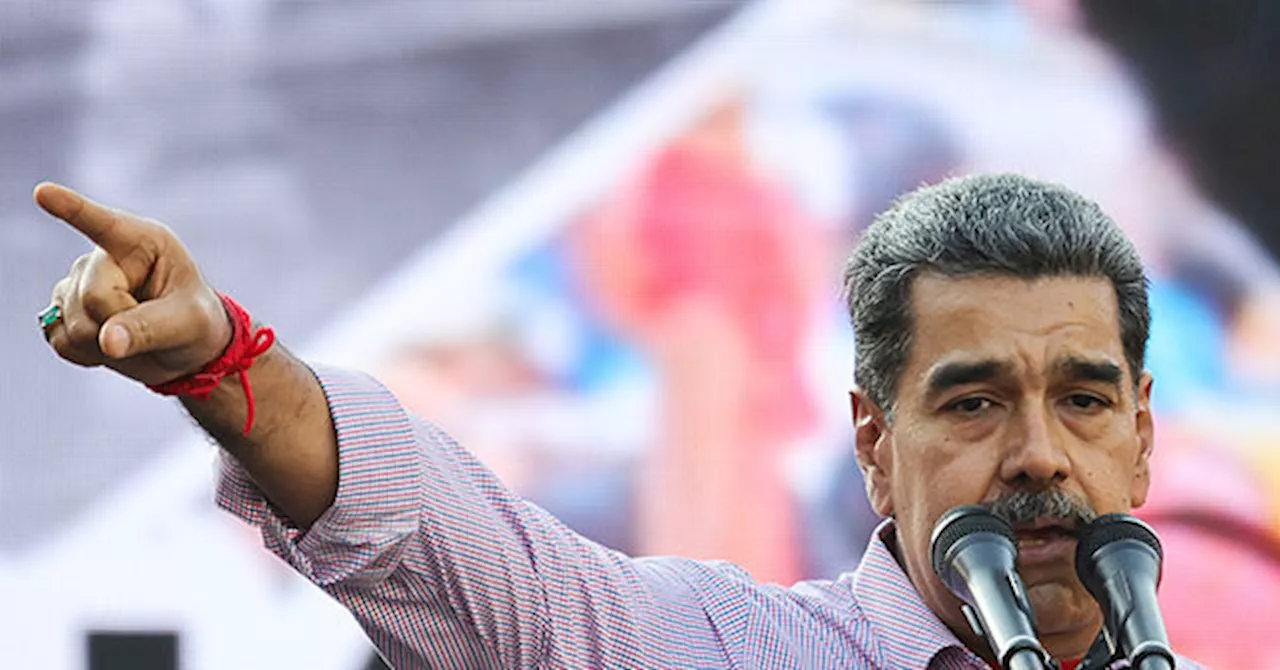Politics
Maduro Claims Generation Z is a Western Psychological Construct

Venezuelan President Nicolás Maduro has made controversial claims regarding Generation Z, alleging it to be a construct of Western media and a form of psychological warfare aimed at controlling youth. At a public event, Maduro argued that the concept of Generation Z, which typically refers to individuals born between 1997 and 2012, is designed to manipulate the minds of young people through social media platforms such as Instagram, TikTok, and Facebook.
Maduro stated, “Generation Z is a creation of the Western media that dominates Instagram, TikTok, and Facebook. They want to shape a generation.” He further asserted that this generation does not exist in Venezuela, describing it instead as a “Great Generation” composed of teenagers aged 14 to 16. This rhetoric follows a pattern of Maduro’s government rejecting foreign influences while promoting a narrative of national resilience.
The Venezuelan leader’s comments come amid a challenging domestic landscape where the education system faces significant difficulties. Those classified as Generation Z in Venezuela have lived their entire lives under a socialist regime, initially established by late President Hugo Chávez, who was elected in December 1998. Chávez’s consolidation of power included the formation of the United Socialist Party of Venezuela in 2007. Maduro succeeded Chávez as president, having been publicly named as his successor on December 8, 2012.
While Maduro calls for the empowerment of Venezuelan youth, the reality remains stark. The country’s education system is plagued by a critical shortage of specialized teachers. According to the Venezuelan non-governmental organization Provea, enrollment in teacher training institutes has plummeted from 116,000 in 2008 to just 30,000 in 2022. Graduation rates for education professionals have also fallen dramatically, with fewer than 2,000 graduates in 2022 compared to 17,000 in 2008. This decline is particularly acute in scientific fields, where the lack of qualified educators poses serious barriers to the development of a knowledgeable youth.
Despite his disparagement of Generation Z as a Western fabrication, Maduro’s administration has aggressively utilized social media to bolster its image. Following the contested 2024 presidential election, the government has invested resources into creating content that portrays Maduro as relatable and engaging. His posts frequently feature him interacting with children and young people, presenting a narrative of connection and support for Venezuelan youth.
In a recent Instagram video, Maduro declared, “They call them Generation Z, but who says so? The same media that manipulate imperial power in the world. In Venezuela, it is the brilliant generation, aged 12 to 22.” He characterized this group as the architects of a new Venezuelan identity, grounded in principles of honesty and creativity.
This portrayal of youth as a “brilliant generation” stands in contrast to the grim reality of educational decline and economic hardship in Venezuela. The ongoing crisis has led to widespread emigration, with many young people seeking opportunities abroad due to the lack of prospects at home.
As Maduro continues to reshape the narrative around Venezuelan youth, the impact of these claims remains to be seen. The juxtaposition of his rhetoric against the backdrop of a deteriorating education system raises important questions about the future of Venezuela’s next generation and the role of government in shaping their identity and opportunities.
-

 Lifestyle3 months ago
Lifestyle3 months agoLibraries Challenge Rising E-Book Costs Amid Growing Demand
-

 Sports3 months ago
Sports3 months agoTyreek Hill Responds to Tua Tagovailoa’s Comments on Team Dynamics
-

 Sports3 months ago
Sports3 months agoLiverpool Secures Agreement to Sign Young Striker Will Wright
-

 Lifestyle3 months ago
Lifestyle3 months agoSave Your Split Tomatoes: Expert Tips for Gardeners
-

 Lifestyle3 months ago
Lifestyle3 months agoPrincess Beatrice’s Daughter Athena Joins Siblings at London Parade
-

 World3 months ago
World3 months agoWinter Storms Lash New South Wales with Snow, Flood Risks
-

 Science3 months ago
Science3 months agoTrump Administration Moves to Repeal Key Climate Regulation
-

 Business3 months ago
Business3 months agoSoFi Technologies Shares Slip 2% Following Insider Stock Sale
-

 Science2 months ago
Science2 months agoSan Francisco Hosts Unique Contest to Identify “Performative Males”
-

 Science3 months ago
Science3 months agoNew Tool Reveals Link Between Horse Coat Condition and Parasites
-

 Sports3 months ago
Sports3 months agoElon Musk Sculpture Travels From Utah to Yosemite National Park
-

 Science3 months ago
Science3 months agoNew Study Confirms Humans Transported Stonehenge Bluestones









